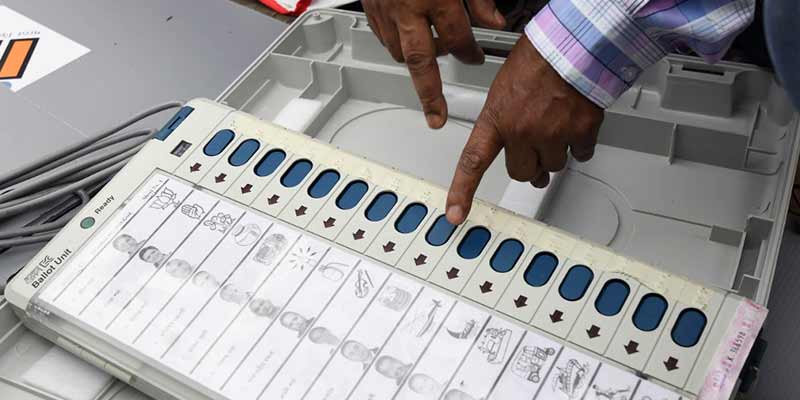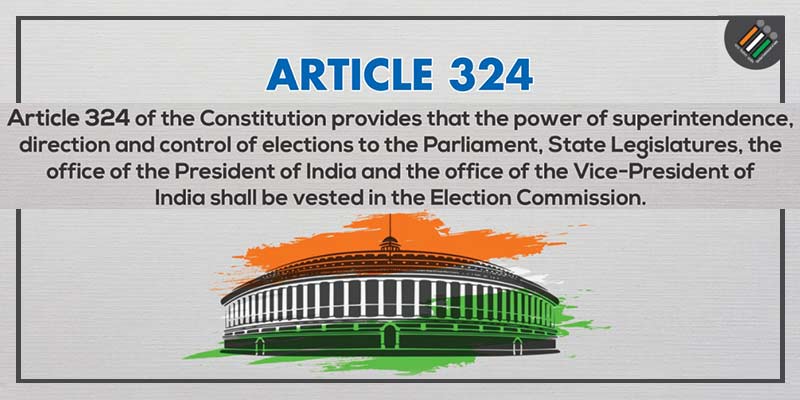- India
- Oct 23
What is Model Code of Conduct?
Against the backdrop of certain political parties conducting electioneering in areas adjoining districts and constituencies where bypolls are being held, the Election Commission asked parties not to hold any political activity directly related to the bypolls in areas adjoining the poll-going districts or constituencies.
The Election Commission said its existing instructions, regarding enforcement of the Model Code of Conduct (MCC) during by-elections to parliamentary and Assembly seats, provide that the applicability of the poll code will be to the district concerned, comprising the poll-going constituency.
Bypolls to three Lok Sabha seats and 30 assembly constituencies spread across various states will be held on October 30. The counting of votes will take place on November 2.
Conducting elections
The Election Commission is vested with the powers and responsibilities of superintendence, direction and control of the entire process of preparation and revision of electoral rolls for, and conduct of, elections to the Houses of Parliament and Legislatures of the states and the Union Territories and of elections to the offices of President and Vice-President.
Elections are conducted according to the constitutional provisions, supplemented by laws made by Parliament and rules and orders made thereunder.
The major laws are:
• The Presidential and Vice-Presidential Elections Act, 1952.
• The Representation of the People Act, 1950.
• The Representation of the People Act, 1951.
What is Model Code of Conduct?
The Model Code of Conduct for guidance of political parties and candidates is a set of norms which has been evolved with the consensus of political parties who have consented to abide by the principles embodied in the said code and also binds them to respect and observe it in its letter and spirit.
The code guides how political parties, contesting candidates and parties in power should conduct themselves during the process of elections. It includes their general conduct during electioneering, holding meetings and processions, poll day activities and functioning of the party in power, etc.
When is MCC enforced?
The Model Code of Conduct is enforced from the date of announcement of election schedule by the Election Commission and is operational till the process of elections are completed.
What is the applicability of MCC?
• During general elections to House of People (Lok Sabha), the code is applicable throughout the country.
• During general elections to the Legislative Assembly (Vidhan Sabha), the code is applicable in the entire State.
• During by-elections, in case the constituency is situated in state capital/metropolitan cities/municipal corporations, then the code would be applicable in the area of concerned Constituency only. In all other cases the MCC would be enforced in the entire district covering the constituency going for bypoll.
What is the role of the EC in the matter?
The Election Commission ensures its observance by political parties and contesting candidates in the discharge of its constitutional duties for conducting the free, fair and peaceful elections to the Parliament and the state legislatures under Article 324 of the Constitution of India.
It is ensured that official machinery for the electoral purposes is not misused.
Electoral offences, malpractices and corrupt practices such as impersonation, bribing and inducement of voters, threat and intimidation to the voters are prevented by all means. In case of violation, appropriate measures are taken.
Election Campaign
The Conduct of Elections Rules, 1961 under the Representation of the People Act, 1951 provides for an interval between the last date fixed for the withdrawal of candidatures and the date of the poll. This period is utilised by the candidates for canvassing and educating the electors.
After the last date of filing nominations, usually two days are provided for the candidates to withdraw their nominations. From the last day of withdrawing the nominations to the polling day, a candidate is given around 14 days for campaigning in which the last 48 hours prior to the polling the candidate is not allowed to hold rallies, road shows or any campaign which involves a gathering.
The last 48 hours are called the Silence Period, during which no active campaigning by candidates or political parties is allowed, and television or any digital media cannot carry any election-related matter.
Star campaigners and other political leaders are to refrain from addressing the media by way of press conferences and giving interviews on election matters
Additional read:
Regulations on election manifestos in India
An election manifesto is a published document containing a declaration of the ideology, intentions, views, policies and programmes of a political party. The election manifesto shall not contain anything repugnant to the ideals and principles enshrined in the Constitution and further that it shall be consistent with the letter and spirit of other provisions of Model Code of Conduct.
Manorama Yearbook app is now available on Google Play Store and iOS App Store


